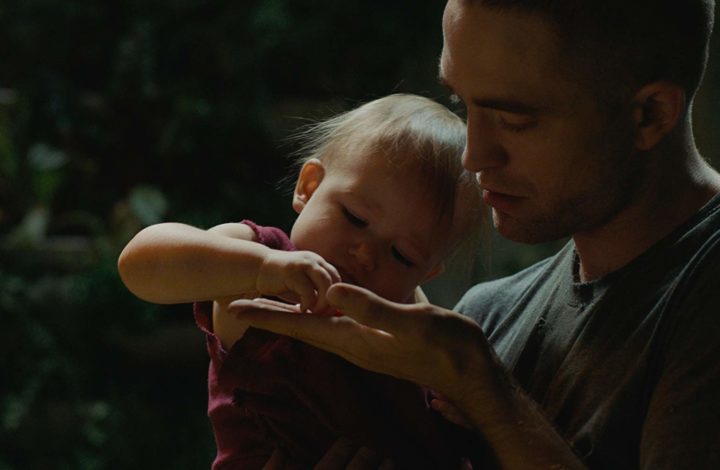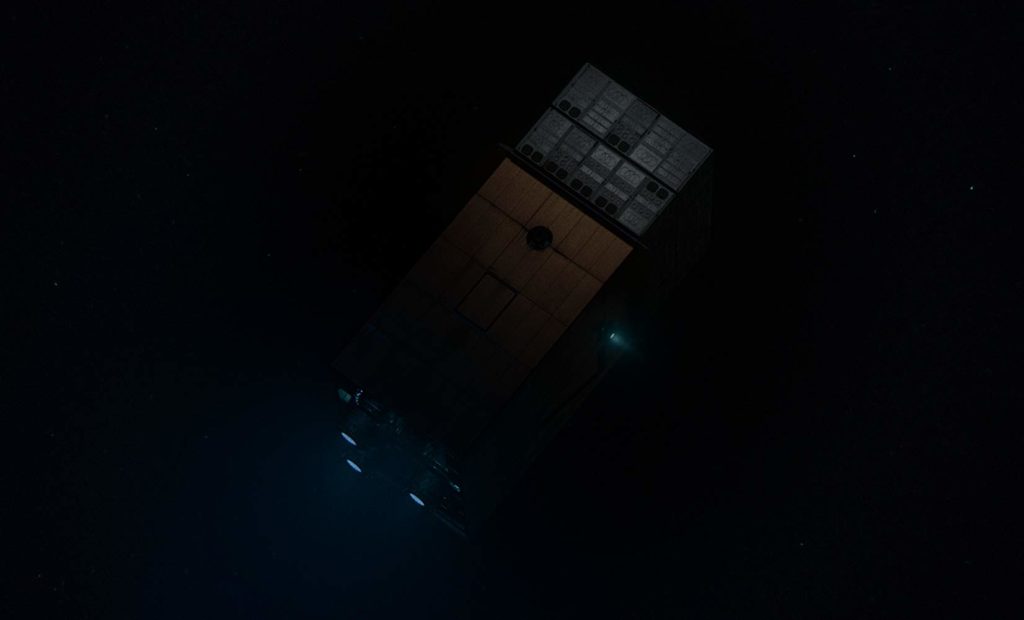
MPAA Rating: R | Rating: ★★★★
Release year: 2019
Genre: Drama, Sci-Fi Director: Claire Denis
In the center of Claire Denis’s somatic sci-fi rumination, High Life, there is a lengthy scene which takes place inside what is aptly called a “f*ck box.” I had heard of this infamous coital cube through the critical conversation, but knew nothing about its function or form (I’d imagined someone having sex with a box). A high school social studies teacher’s declaration that every cultural work of art–every novel, every poem, every painting–was either ultimately about sex or death came to mind during this scene in High Life. Human sexuality and mortality are clearly the prevalent themes Denis aims to explore as she places a group of doomed individuals in what could be called the “f*cked box,” the squarish experimental spacecraft (see below) continually accelerating near the speed of light towards a black hole. This peculiar and probing cinematic world is as bleak as it is beautiful, and full of surprising hope in a strikingly wretched situation.
High Life, Denis’s first English-language film, focuses on two of these space wanderers, Monte (Robert Pattinson), and his infant daughter, Willow (Scarlett Lindsey as a baby, Jessie Ross as an adolescent). As is Denis’s wont, the narrative shifts back and forth in time between their present circumstances and Monte’s memories of life before Willow. Their world on the spaceship is not the sterile and symmetrical aesthetic of Kubrick’s 2001: A Space Odyssey, but a grimy and organic environment of fluids and violence, more like the lived-in aesthetic of Alien meets the philosophy of Tarkovsky’s Solaris or Boyle’s Sunshine. Monte’s fellow shipmates (André Benjamin, Mia Goth, Claire Tran) are, like Monte, death row prisoners who have agreed to go on this suicide mission to find an alternative energy source for earth at the rim of a black hole. The present-day capitalist logic that prompts us to suck up Earth’s natural fossil fuels to use for our own climatic and climactic self-destruction prevails even here—if we’ve run out of resources on Earth, let’s search for more anywhere we can, including a black hole.
It’s a remarkably bleak premise: violent reprobates already doomed to die now live imprisoned in a box aimed for a black hole. They are, simply put, the living dead. Indeed, High Life seems to suggest that this is the human condition itself—aren’t we all just hurtling through space until we eventually die? Yet, paradoxically, Denis manages to mine this nihilistic perspective for hidden vivacious energies and ideas, particularly in Monte’s care for Willow. When everything and everyone else is dead and gone, why keep on living? What is the telos for this seemingly-damned father and daughter? This is where High Life soars as it raises foundational philosophical and theological questions in fresh and invigorating (if not provocative and grotesque) ways. Through the sound design and soundtrack—a fatherly song Monte sings for Willow brought tears to my eyes—Denis generates a modicum of genuine hope in the face of utter despair. Pattinson is especially good here, giving a performance which rivals his role The Lighthouse in its complexity and nuance of a quiet man isolated with another person in extreme circumstances. Binoche is also excellent, if a bit off-kilter as a sex-obsessed scientist. More than anything, High Life is willing to stare into the hopeless void and discern a particle of optimism. Life finds a way.
IMDB Listing: https://www.imdb.com/title/tt4827558/

Leave a Reply